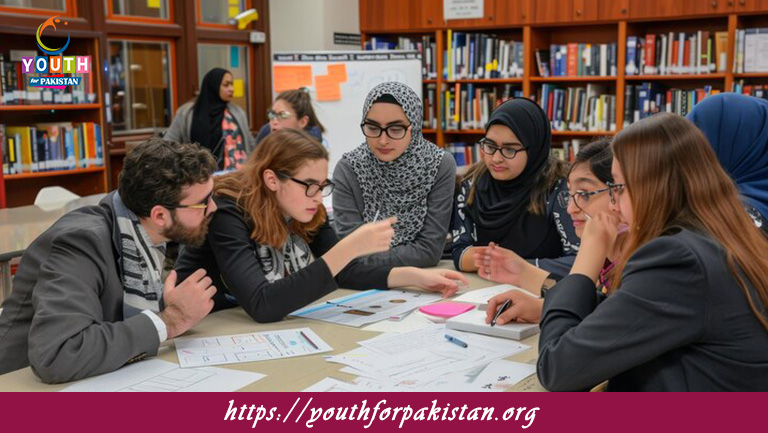The fully financed Humboldt Research Fellowship 2025–2026 program allows researchers to do research at a German host university. The researchers are free to choose the host institutions for this international fellowship in Europe. This Alexander von Humboldt research fellowship is particularly appealing because it allows the scholars to conduct their study at different phases of their careers.
Alexander von Humboldt Foundation postdoctoral researcher Humboldt research fellowship program. The organization gives more than 700 researchers the chance to travel to Germany for free each year by offering them fellowship and award opportunities. The recipients of fellowships and awards from this Foundation are well-known worldwide for their exceptional research work and remarkable abilities since they are among the most generous and prestigious accolades given in Germany.
The Alexander von Humboldt Foundation has amassed a sizable alumni group over the years, with over 26,000 Humboldtians spread across more than 140 countries, thanks to this fully funded research scholarship. There are 49 Nobel laureates among these graduates. Thus, this fellowship for academics from around the world offers them a chance to step up on the ladder that leads to famous and well-known honors like the Nobel Prize. The scholars can also conduct their research in other parts of Europe, if needed, in addition to their home nations, which is another intriguing and alluring feature of the Humboldt fellowship program. In addition to doing the best research, visiting various regions of Europe for study can help one learn more about German culture as well as the cultures of all of Europe.
Application Guidelines of Humboldt Research Fellowship:
Host Organization: Alexander von Humboldt-Stiftung / Foundation
Degree level: Postdoctoral researchers
Scholarship coverage: Fully Funded
Eligible nationality: All nationalities
Award country: Germany
Duration: 6–24-month research stay in Germany
Last Date: March, July, and November
Purpose of Humboldt Research Fellowship
The Humboldt Research Fellowship encourages global scientific cooperation by providing funding for exceptional researchers to carry out their studies in Germany. It seeks to promote worldwide connections between academic institutions and researchers, encourage the sharing of knowledge, support high-caliber research, and improve professional development through networking opportunities.
Eligibility Criteria Humboldt Research Fellowship
- PhD or equivalent completed within 4 years (postdocs) or 12 years (experienced researchers); up to 16 years with a strong publication record.
- Relevant academic publications in internationally reviewed journals.
- Confirmation of research facilities and mentoring agreement from a German academic host.
- Two expert reviews, preferably including the doctoral supervisor.
- Proficiency in German or English depending on the field.
- Must have lived outside Germany for 12 months in the 18 months prior to application.
- German nationals must have lived abroad for at least five years.
Benefits of Humboldt Research Fellowship
- Monthly Stipend
- €2,670 per month for Postdoctoral Researchers
- €3,170 per month for Experienced Researchers
- A lump sum mobility allowance will be provided for participation in necessary conferences, research trips, library stays, etc. these can be in Germany and abroad.
- Travel expenses will be covered
- Medical insurance and liability insurance subsidies will be provided.
- A lump sum amount will be provided for the travel expenses in case the costs are not borne by any third party.
- Language fellowship will be provided for an intensive language course.
- Language fellowships may also be granted to accompanying marital partners.
- Family allowances will be provided for accompanying family members who are staying for at least three months.
- For single parents: a flat-rate allowance for accompanying children under the age of 18 will be provided.
- Europe allowance for a research stay at a research institute in another European country will also be provided.
- a subsidy towards research costs to be paid to the hosts in Germany amounting to 800 EUR per month for research in the natural sciences and engineering and 500 EUR for research in the humanities and social sciences.
Application Process
- Submit applications online 4-7 months before the selection date.
- Expert reviews and host’s statement are uploaded directly by referees.
- Incomplete applications are excluded from the selection process.
- Applicants receive notification of the selection date after document review.
- Independent peer review by a committee of 60-70 academics.
- Selection committee meets in March, July, and November.
- Sponsorship can start on the date in the application or be postponed up to 12 months.
- Rejected applicants can resubmit with significant improvements; unanimous rejections require an 18-month wait.
- For more details on the application and selection process, refer to the FAQs and application form notes available on the Humboldt Foundation’s website.
Documents Required
The documents typically required for the Humboldt Research Fellowship application include:
- Research Proposal: A detailed description of the proposed research project.
- Curriculum Vitae (CV): A comprehensive outline of academic and professional experience.
- Letters of Recommendation: Usually two or three letters from academic or research professionals familiar with your work.
- Doctoral Degree Certificate: Proof of the completed doctoral degree or equivalent qualification.
- List of Publications: A list of your academic publications and research contributions.
- Host Institution Confirmation: A letter of invitation or confirmation from a German host institution, if applicable.
Application Deadline
March, July, and November
Application Tips
Here are some tips for a successful application to the Humboldt Research Fellowship:
- Craft a Strong Research Proposal: Clearly outline your research objectives, methodology, and significance. Ensure it aligns with the interests of potential host institutions in Germany.
- Highlight Collaboration: Emphasize your willingness and ability to collaborate with German researchers and institutions. Mention any prior connections if applicable.
- Tailor Your CV: Customize your CV to highlight relevant experience and achievements that demonstrate your qualifications for the fellowship.
- Choose Recommenders Wisely: Select referees who know your work well and can speak to your research potential and collaborative spirit.
- Follow Guidelines: Adhere closely to application guidelines regarding format, length, and required documents.
- Proofread: Ensure your proposal and documents are free of errors. Clear, concise writing is essential.
- Engage with Host Institutions Early: Reach out to potential hosts before applying to discuss your project and secure their support.
- Demonstrate Impact: Clearly articulate how your research will contribute to your field and benefit from being conducted in Germany.
- Be Authentic: Let your passion for your research shine through. Authenticity can make your application stand out.
- Prepare for Interviews: If required, be ready to discuss your proposal and research interests in interviews, showcasing your enthusiasm and knowledge.
Frequently Asked Questions
Who is eligible to apply?
The fellowship is open to researchers from all countries who hold a doctoral degree or have equivalent research experience.
What is the duration of the fellowship?
The fellowship can last from 6 to 24 months, depending on the research project.
Can I choose my host institution?
Yes, applicants can select their host institution in Germany, and they are encouraged to establish contacts with potential hosts before applying.
What costs are covered by the fellowship?
The fellowship covers living expenses, travel costs, and health insurance, along with additional allowances for research-related expenses.
How do I submit my application?
Applications are typically submitted online through the Alexander von Humboldt Foundation’s website, following specific guidelines.
Are there specific fields of study that are prioritized?
The fellowship is open to all fields of study, promoting interdisciplinary research.
Do I need to speak German to apply?
While knowledge of German may be beneficial, it is not a requirement. Many researchers work in English.
What is the selection process like?
Applications are evaluated based on the quality of the research proposal, academic qualifications, and the potential for collaboration with German institutions.
Can I apply for multiple fellowships?
Yes, applicants may apply for other fellowships simultaneously, but they should disclose this in their applications.
What happens after I receive the fellowship?
Recipients are expected to engage actively with their host institution, participate in academic events, and contribute to the research community in Germany.




